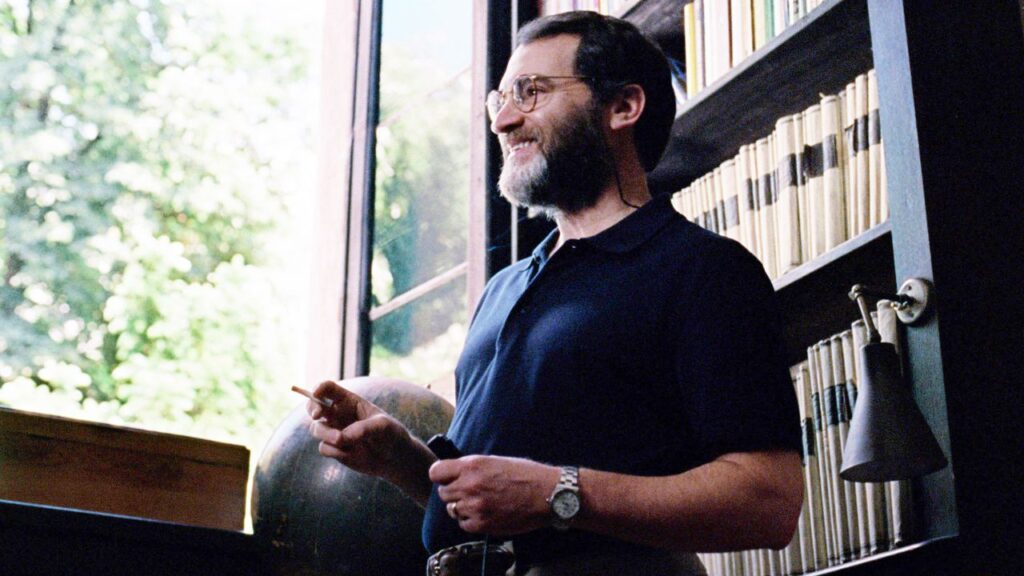Working with Julia throughout this film was not just a privilege and an exciting opportunity, but in that scene in particular, the frailty that she managed to inhabit, also colored everything I did, and in a similar sense to the monologue in Call Me by Your Name.
We shot it towards the very end of the shoot as well. I had spent a lot of time with that scene, of which actually large portions had been taken out of. It was I think initially almost double digits in terms of pages. In the end, it became unnecessary really in the story that we were choosing to tell. So some of whatever Frederick might have been going through personally didn’t need to be articulated in that scene. And I think it offers a loving version of the scene, whereas I think it may been something quite different in another [version].
Towards the end of the scene, all of a sudden we’re above them. Coming from a layman like myself in terms of filmmaking, I would want to be as close as I can to the individuals to see what it is they’re going through. Finally, when Frederik’s trying to understand if Alma can forgive herself for feeling responsible for what she did in the past, all of a sudden by [cinematographer] Malik Hassan Sayeed and Luca’s choice to put the camera above us, it’s almost like a voice of God, almost like an act of grace in that sense. Almost like we’re looking down on these people who are suffering and learning things about each other. It lifts us out of the situation in some sense and provides the audience with a different perspective in and outside of that room.
That moment has the same energy as that speech in Call Me By Your Name, which I’m sure people talk to you about all the time. I was watching it again this morning and I cried as if I was watching it for the first time. And I was like, Wait, I’ve seen this before. Why am I tearing up?
That’s wonderful.
I’m sure people approach you all the time about it.
When they do, it’s a blessing. This speech, it’s been the gift that has kept on giving, throughout the last however many years it’s been. I’m grateful when people say things because in the making of movies, it’s quite a lonely job. You never know what it is you’re making or if it will have any impact on anyone at all. And that piece of text is an asterisk and a grace note in my life. And if it continues to move people, I’m grateful to have been the vessel to have been a part of that moving. Because there’s nothing worse than wanting to share and move, share your humanity with the world and then perhaps never hear from it again. So yeah, I’m grateful when I hear that it’s moved people.
I find your performance in After the Hunt so fascinating. I feel like, on the one hand, you’re almost like Ruth Gordon in The Misfits, where it’s like these three people who are miserable, going through all these things, and you kind of pop your head in with humor but also empathy. But on the other hand, the character is also almost pleading for Alma’s attention, especially in that scene in the kitchen towards the end. I almost felt like you were the Greek chorus. Tell me about walking that line.
That’s so interesting. I think he sees what’s going on and it resonates with him. And perhaps through Frederik’s eyes, the audience has a friendly place to land within those complicated contexts.


